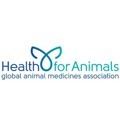 In a report launched today, leading experts in animal health call for further innovation in vaccine technology and protocol to improve health outcomes. The report, ‘Innovation in animal health’ discusses the future of the animal health industry and addresses common, global barriers to modern vaccine use including the regulatory process and market competition as well as existing scientific knowledge.
In a report launched today, leading experts in animal health call for further innovation in vaccine technology and protocol to improve health outcomes. The report, ‘Innovation in animal health’ discusses the future of the animal health industry and addresses common, global barriers to modern vaccine use including the regulatory process and market competition as well as existing scientific knowledge.
A recent survey conducted on behalf of HealthforAnimals in conjunction with the World Veterinary Association and AnimalPharm revealed vaccination is seen as the ‘biggest breakthrough’ in animal health in the past 100 years. Estimated at $5,507.3 Million in 2015, the global animal vaccines market is predicted to reach $7,197.9 Million by 2020.

In addition, the survey also found that 89 per cent believed that the human health sector could learn from the veterinary medicines one with one key area identified being ‘a greater focus on preventative healthcare’. And yet preventable diseases such as rabies continue to kill thousands of animals and people annually, demonstrating that there are still barriers to modern vaccine use.
The HealthforAnimals report identifies these barriers, but also proposes solutions, such as:
Regulatory Streamlining
The regulatory process for new veterinary medicines is commonly identified as a barrier to modern vaccine use, yet in times of emergency it has been proven that these barriers can be rapidly overcome. Professor Peter Borriello of the UK Veterinary Medicines Directorate, suggests that governments should target going beyond harmonisation, to reform and reduce the number of regulatory bodies, ensuring sufficient standard and capacity, to move away from the current arrangement of every country undertaking the review process itself.
Market ‘Coopetition’
Another potential area of innovation in vaccine technology, suggested in the report is ‘coopetition’, a concept already taking place in other sectors. When companies across the animal health sector share a common objective, e.g., acknowledgement by policymakers, farmers and society of the benefits of synthetic biology, then it can make sense for those companies to work together pre-competitively, in a strategic way. Risks and costs, as well as data, can be shared by working together, with research institutes and with the public sector. This would permit quicker development of vaccines and better use of overall available funding.
Vaccine Banks
An innovation already in motion, vaccine banks can hold ready-to-use, formulated vaccines, and/or antigen components, to be formulated into vaccines as needed. The World Organisation for Animal Health (OIE) has developed a new concept of regional vaccine banks that creates virtual rolling stocks where suppliers produce the vaccines only when needed, or they remain with the suppliers at their own risk and are renewed on a rolling basis under terms and conditions contractually defined with the OIE. Nonetheless, according to Dr. Gregorio Torres of the OIE, vaccine banks are hugely important to ensure the timely procurement of high quality vaccines manufactured according to international standards and merit a greater allocation of funding.
Carel du Marchie Sarvaas, from HealthforAnimals commented on the conclusions of the report stating: “Vaccination has profoundly influenced and improved the health of both animals and people globally, and it will continue to be a fundamental tool to meet future health challenges. It has eliminated smallpox in people and can control many other diseases against which no other treatment exists, such as human polio, foot-and-mouth disease in cattle and rabies in people and animals. Prevention is better than cure so it is vital we inject innovation into this field to ensure its growth.”
Other topic areas addressed in the report include, pet health, food safety and sustainability, and zoonotic diseases. Independently authored by Oxford Analytica, ‘Innovation in animal health’ was generated from discussions at a global stakeholder roundtable meeting in September 2015, hosted by the global animal medicines association, HealthforAnimals.
To outline the benefits of vaccination in animals, HealthforAnimals has also created an infographic, ‘Vaccines, Why they matter’. The infographic addresses the importance of vaccines for protecting human and animal health, and explains why we vaccinate animals, with examples of vaccination in action around the world as well as success stories.
January 20, 2016 - Health for Animals


